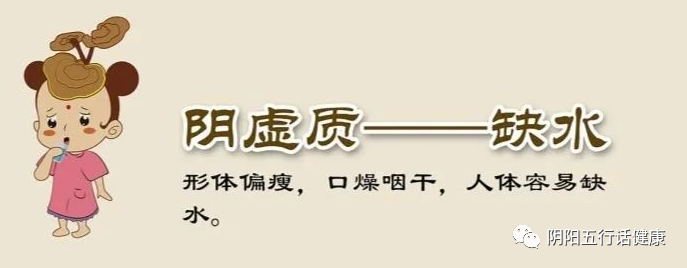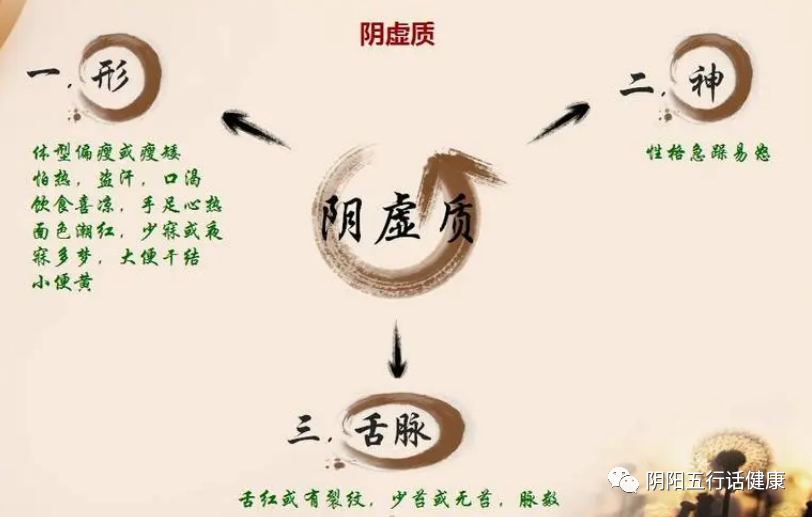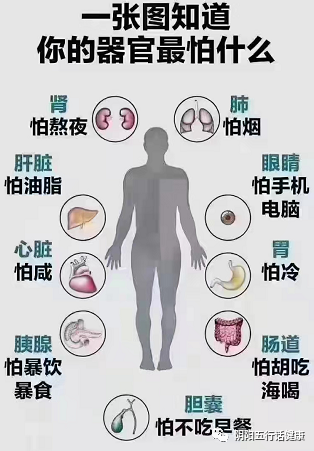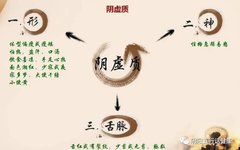
Yin Deficiency Constitution refers to a common condition characterized by insufficient moisture in the body, indicating a lack of Yin. We know that water and fire are opposing forces; thus, a deficiency in water leads to two main consequences: one is a lack of moisture, resulting in dryness and desiccation. The other is that with less water, fire becomes predominant, leading to internal heat. Individuals with insufficient water are particularly prone to internal heat and excessive Yang. The combination of Yin deficiency and internal heat is especially common in women. Why is this more prevalent in women? It relates to certain physiological functions unique to women, as they typically go through several physiological stages in their lives, including menstruation, pregnancy, childbirth, and lactation. These processes primarily consume blood, which is Yin in nature, leading to a higher likelihood of developing a Yin deficiency constitution. Therefore, from a gender perspective, women are more frequently affected. The external manifestations of Yin deficiency can be assessed through physical characteristics. Due to the internal heat associated with Yin deficiency, there is a high metabolic rate, and the mitochondria are more active. I jokingly say that individuals with Yin deficiency and internal heat often find it difficult to gain weight. We often say, “This person has such a good appetite, yet they never gain weight, even if they were to soak in oil!” Such individuals typically have a Yin deficiency and internal heat constitution. Therefore, they can enjoy a variety of foods. To improve Yin deficiency and internal heat, consuming seafood is beneficial, as it is salty and can nourish Yin. Eating more fruits is also recommended, as it improves skin health, which is particularly advantageous for those with Yin deficiency. Internal heat can manifest in the middle jiao, with a strong stomach fire leading to a good appetite, yet they still do not gain weight. I must admit, I envy such individuals; they are rare. Additionally, due to Yin deficiency and internal heat, they often experience a sensation of heat, but their body temperature may not be high. Symptoms of heat include a feeling of heat in the palms and soles. This sensation is termed ‘irritability due to heat’ because it causes discomfort. I remember a classmate from university who would often study with her feet in a basin of cold water and her hands resting on two stones. I found it curious at the time, as I was just beginning to learn about TCM. I asked her why she did that, and she explained that her palms and soles felt hot, making it difficult for her to concentrate. I understood then that this was a manifestation of Yin deficiency and internal heat, leading to irritability. Such individuals tend to be very active, energetic, and resilient, indicating the presence of internal heat.

Another consequence of internal heat is frequent constipation. A characteristic of this condition is that the stool is often hard and pellet-like, referred to in TCM as ‘sheep droppings.’ The urine is scanty and yellow; despite drinking water, the urine remains concentrated and yellow, which is a manifestation of Yin deficiency and internal heat.
Additionally, there is often a sensation of dryness. Besides the feeling of heat, there is also a sensation of dryness, leading to dry eyes, stiff joints, and dry skin, with lips appearing red and dry.
Another characteristic is a strong aversion to summer. As I mentioned earlier, during summer, she would constantly touch the stones and keep her feet in cold water to feel comfortable. This aversion to summer is described in TCM as ‘tolerating winter but not summer.’ In winter, they may not fear the cold; you can see that they are thin yet strong. This type of thinness is different from that seen in those with Qi and blood deficiency, who are often pale, weak, and lack energy. In contrast, those with Yin deficiency have a more compact physique, with rosy lips and a tongue that is red with little coating, which are signs of Yin deficiency. Such individuals may require 8 hours of sleep, while others can function well on 5 or 6 hours of sleep. They are also prone to irritability and emotional fluctuations. They often have bright, expressive eyes. I find that individuals with Yin deficiency and internal heat tend to be very active in the clinic, talking, moving things around, and asking questions, unable to sit still.
What causes the formation of a Yin deficiency constitution? It can be attributed to congenital factors inherited from parents. Additionally, prolonged emotional suppression or depression in some women can lead to Yin deficiency. In TCM, this is referred to as ’emotional distress transforming into fire.’ When this fire cannot be expressed, it turns inward, consuming Yin fluids. I believe that the character Lin Daiyu from “Dream of the Red Chamber” exemplifies this; living under someone else’s roof, unable to express herself, she could only show her feelings to Jia Baoyu. Her suppressed emotions transformed into fire, depleting her Yin fluids and leading to a Yin deficiency constitution. Individuals with a Yin deficiency constitution often have a characteristic physique known as ‘tuberculous physique’: long neck, slender build, resembling bean sprouts, making them more susceptible to tuberculosis. Lin Daiyu, after all, died from coughing up blood. Another cause of Yin deficiency can be long-term heart dysfunction or hypertension, especially in patients who excessively use diuretics, which can also lead to a Yin deficiency constitution. Furthermore, a long-term diet high in spicy and heating foods can exacerbate and promote the development of Yin deficiency. As for the health implications of this condition, the diseases it can lead to, and how to cope with it, I will discuss in the next lecture.
We have learned about the characteristics of Yin deficiency constitution and health preservation methods. I will specifically introduce the diseases that individuals with Yin deficiency are prone to and what to pay attention to in health preservation.
Individuals with Yin deficiency and internal heat must be cautious about developing spots. Due to their dry skin, once spots develop, the pigmentation caused by the combination of internal heat and dryness is the hardest to remove. It is difficult to even lighten them, so those with this constitution must pay special attention to protecting their skin to prevent spots from forming; once they appear, it becomes troublesome. Individuals with Yin deficiency and internal heat may be thin but can still have high blood lipids. High blood lipids can occur in both obese and thin individuals. Some may even be underweight yet have high blood lipid levels. Why? Because when Yin deficiency reaches a certain level, the blood becomes viscous, leading to elevated blood lipids. They can also develop hypertension. Thus, we should not assume that hypertension only occurs in overweight individuals; those with Yin deficiency and internal heat can also develop it. However, the underlying mechanisms in TCM differ. Diabetes can also occur, known as ‘Xiao Ke’ in TCM, characterized by persistent thirst that is unrelieved by drinking. In the early stages of diabetes, it is primarily associated with Yin deficiency, presenting symptoms such as dry mouth and unquenchable thirst, with the skin becoming thinner and drier. Additionally, constipation is common. While constipation is not considered a disease in Western medicine, it is regarded as a condition in TCM. It can also lead to a constitution that is inherently weak, particularly concerning women, as it affects reproductive endocrine functions and menstrual cycles. When a woman’s menstrual cycle is affected, her appearance changes, particularly in secondary sexual characteristics, leading to a lack of feminine beauty.
For women with a Yin deficiency and internal heat constitution, menstrual symptoms typically include early menstruation and shortened cycles, potentially occurring every 20 days or even three times in two months. If Yin deficiency is severe, it can lead to amenorrhea, termed ‘blood depletion and amenorrhea.’ We say that a fundamental characteristic of Yin deficiency and internal heat is dryness and lack of nourishment, along with internal heat, making individuals prone to the aforementioned diseases. In the process of health preservation, what should we pay attention to? Since this constitution is unlikely to be completely transformed, I cannot convert a Yin deficiency constitution into a phlegm-damp constitution; it is not feasible. You can only go with the flow, preventing further development of internal heat and depletion of Yin fluids, avoiding exacerbating the deficiency. How can we achieve this?
TCM believes that once a constitution is formed, it is challenging to transform it. Only by providing extra care for different constitutions in health preservation can we avoid more severe consequences. So how should people treat a Yin deficiency constitution?
On one hand, you can appropriately supplement Yin fluids through diet and lifestyle, while on the other hand, you should avoid depleting Yin fluids. How to prevent the depletion of Yin fluids: through calming and tranquilizing methods. TCM states: ‘Calmness generates water.’ Human activity and mental activity consume the material foundation. The more intense the mental activity, the more Yin fluids are consumed. Mental activity is inherently Yang, so we often say, ‘The heart is like a wild horse on a plain, easy to let loose but hard to rein in.’ The mind is difficult to calm. Everyone has desires and activities; even when you sleep, you may still dream, indicating that the mind cannot remain still. The mind is a typical Yang process, and this process consumes Yin, primarily depleting Yin blood. Therefore, if the mind is relatively calm, it will not consume Yin blood. This is called ‘calmness generates Yin, calmness generates water.’ Thus, we need to take various measures in diet, medication, sleep, and acupuncture to help calm the mind and stabilize it, ensuring more sleep. The basic principle is to nourish and moisten Yin, calm the mind, as calmness generates water.
Now let’s look at specific dietary aspects. First, avoid foods that can harm Yin. What harms Yin? Warming, drying, spicy, rich, and fried foods all harm Yin. We know that the cooking methods of food also impact our constitution. For example, foods that are braised, steamed, stewed, or boiled are generally more nourishing and gentle, making them less likely to generate heat. In contrast, fried or stir-fried foods, even if the ingredients are not inherently heating, can become heating due to the cooking method. Such foods can generate heat, harm Yin, and lead to dryness and heat in the body. Therefore, for individuals with a Yin deficiency constitution, cooking methods such as braising, steaming, stewing, and boiling are more suitable. They should avoid fried, stir-fried, and barbecued foods, as these are detrimental to Yin deficiency. For meat, braising is acceptable, but avoid excessive use of strong spices like star anise, fennel, and other heating spices. I have seen many women in clinical practice, especially those from the south with Yin deficiency and internal heat, who are particularly sensitive to these foods. Lamb, dog meat, and shrimp are not beneficial for those with Yin deficiency and internal heat. Instead, they can consume light and nourishing foods, such as sweet fruits: grapes, persimmons, snow pears, apples, watermelons, and lotus root. Fresh lotus root is excellent for those with Yin deficiency and internal heat. If the lotus root is slightly older and starchy, it is good for tonifying the spleen and stomach. For those with Yin deficiency and internal heat, fresh lotus root juice is very beneficial in summer, as it helps clear heat. Sugarcane is also good. We say that crabs are warming while shrimp is cooling; for those with Yin deficiency and internal heat, crabs may be more suitable. If you are a person with Qi deficiency, Yang deficiency, and dampness, but still want to eat crabs, you can pair them with ginger juice to mitigate the cold nature. You can also consume foods like duck, sea cucumber, cuttlefish, turtle, and soft-shelled turtle, which are delicious and beneficial for those with Yin deficiency.
In terms of lifestyle, individuals with a Yin deficiency constitution should avoid intense exercise during the hot summer months, as this can harm Yin and generate heat. They should also avoid working in excessively hot environments to prevent excessive sweating. Additionally, it is crucial to arrange work in an orderly manner. This organization is vital for the health preservation of those with a Yin deficiency constitution, as being anxious and stressed can further deplete Yin, creating a vicious cycle. Therefore, it is essential to prioritize and manage work effectively.
As for simple herbal remedies, certain herbs can nourish Yin fluids. You can enjoy foods like tremella, bird’s nest, and cordyceps, which are suitable for consumption. I once met an elderly TCM practitioner in Hong Kong who was quite famous. He often treated local celebrities using TCM. One female celebrity, in her effort to maintain her slim figure and good skin, adopted a diet of tremella, bird’s nest, and glutinous rice porridge. She used high-quality bird’s nest, and while her initial intention was good, the outcome was not favorable. She became very thin, lost her appetite, experienced bloating, and developed many skin blemishes. Why? Because tremella and bird’s nest are very nourishing. If you already have a Qi deficiency constitution and a weak spleen and stomach, consuming too much can lead to stagnation in the spleen and stomach, preventing heat from descending, resulting in skin blemishes. Those with both Qi and Yin deficiency, as well as those with Yin deficiency, can benefit from these foods, as they can nourish the skin and provide moisture. You can also consume eclipta, privet fruit, adenophora, ophiopogon, polygonatum, and lily. Cooking lily with rice or red dates is common in Guangdong. In autumn, when the air is dry, cooking adenophora, ophiopogon, polygonatum, and snow pears with lean pork creates a delicious soup. The combination of pork’s freshness and the sweetness of snow pears makes it very nourishing. In autumn, when my skin is very dry and my lips are cracked, drinking this soup quickly makes my lips feel moisturized, as if I had applied lip balm.
Commonly used TCM patent medicines can also be taken to improve the Yin deficiency constitution. You do not have to follow the prescribed dosage strictly; you can reduce the amount. When your constitution shows significant imbalances, you can take some herbal remedies, such as the Rehmannia Six Formula series (Liu Wei Di Huang Wan, Qi Ju Di Huang Wan, Zhi Bai Di Huang Wan). Liu Wei Di Huang Wan is suitable for general Yin deficiency. If you experience dryness, dry eyes, or tinnitus, indicating liver and kidney Yin deficiency, you can take Qi Ju Di Huang Wan. If you have internal heat, with very yellow urine and irritability, you can take Zhi Bai Di Huang Wan. If you have trouble sleeping, you can use Tian Wang Bu Xin Dan. Seasonal health preservation is particularly important in autumn for those with a Yin deficiency constitution.
In TCM, autumn is considered the best time for health preservation for those with a Yin deficiency constitution. What is the reasoning behind this? What secrets does it hold? What applicable health preservation methods are there?
Why is it that individuals with a Yin deficiency constitution have weak links in their health? It is primarily in the heart, liver, spleen, lungs, and kidneys, particularly the lungs and kidneys. Why? Because the lungs are the upper source of water, and the kidneys are the lower source of water. In cases of Yin deficiency, water is insufficient, making these two organs relatively weak. In autumn, when kidney Yin is insufficient, it is often due to congenital factors. We may feel somewhat helpless. However, when lung Yin is insufficient, the lungs play a major role in the four seasons. In spring, the liver is dominant; in winter, the kidneys are dominant. If I want to nourish, I must nourish the foundation, which means nourishing the kidneys, making winter the best time for kidney tonification. In autumn, which organ takes the lead? It is the lungs. During autumn, the body must gather and descend Qi. There is a mechanism that aligns with nature, where Yang energy gathers and Qi is concealed. Which organ helps the body adapt to these natural changes? The lungs play a crucial role. Therefore, in TCM, when discussing lung function, it is essential to mention its significant role in ‘suppressing and descending.’ In autumn, it is vital to ensure the lung’s suppressive function. Through this suppression, it can lower heart and liver fire, stabilizing emotions. This suppression allows the kidneys to receive adequate nourishment. This prevents the Yin deficiency constitution from becoming significantly imbalanced, protecting the Yin deficiency constitution. You may ask, how can I help the lungs suppress? You need to understand the characteristics of the lungs; they prefer what? The lungs, as delicate organs, favor cleanliness and moisture (first, they prefer cleanliness; second, they prefer moisture). To help them descend, I will provide you with some cooling and moistening foods. What are cooling and moistening foods? As I mentioned earlier, adenophora, ophiopogon, polygonatum, lily, and seasonal fruits like pears and persimmons are excellent for moistening the lungs and aiding in their descent. As long as you keep them moist, they will naturally descend; this is their nature and the way of life. Therefore, autumn is a key time for health preservation; you must pay attention to moisture and maintain the lung’s suppressive function. The lungs are delicate organs that have a close relationship with the natural environment. Breathing is essential; even a grain of rice can cause coughing. The lungs are intolerant of cold, heat, and especially dryness. They fear dryness, so in autumn, if you do not keep them moist, they will become dry. This leads to dry nasal passages, irritability, poor sleep, and dry stools. In the morning, when you cough, the first phlegm may even contain blood. This is the result of not allowing the lung Qi to remain moist and descend, which exacerbates your Yin deficiency constitution, leading to noticeable imbalances, entering a sub-healthy state, and further developing the diseases I mentioned, which are quite uncomfortable. Therefore, autumn is a critical time for those with a Yin deficiency constitution, with the lungs being the primary focus.
We say that meridian health is important for those with a Yin deficiency constitution. I feel that acupuncture treatment for many diseases arising from a Yin deficiency constitution is not very effective. Therefore, for many diseases associated with a Yin deficiency constitution, I believe that dietary adjustments, appropriate herbal remedies, lifestyle changes, and mental adjustments are more important.


